Table of Contents (click to expand)
The most likely explanation for feeling tired all day but wired at night is that your Circadian rhythm is disrupted. This can be caused by a number of factors, such as adrenal disorders, poor sleep habits, sleep disorders, or mental vs physical exhaustion. To avoid this, it is important to take care of your sleep habits and to avoid disruptions to your Circadian rhythm.
We all know the feeling… you’ve been dragging your feet around the office all day, barely able to keep your eyes open through interminable meetings, and sluggishly making your way home through traffic. Yet, a few hours later, once you’ve settled back into domestic bliss, instead of the relaxing embrace of sleep, you find yourself wide awake! How is it possible for you to feel exhausted all day, but once the “right” time for sleep arrives, your body decides that it’s full of energy?
This is a frustrating situation that many people have experienced from time to time in their lives, and for some, it’s a chronic problem that can be extremely disruptive to their social, personal and professional lives!
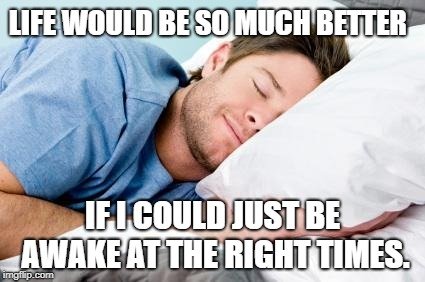
The key to understanding this strange and illogical condition is the human sleep cycle, and more specifically, our Circadian rhythms. However, that is far from the only explanation. Stress, adrenal disorders, poor sleep habits and general sleep disorders also play into this unpleasant sleep situation, and should also be explored. To begin with, let’s dive into Circadian rhythms and the complexities of those key processes.
What Is Circadian Rhythm?
You Circadian rhythm is basically the 24-hour clock that the body maintains, helping your body and mind fluctuate between alertness and tiredness. Obviously, your body can’t operate every hour of the day; it needs time to rest and recuperate from the strains of the day. Your Circadian rhythm is also known as your sleep/waking cycle, and it is why you are able to function and wake up every morning with energy to face the day!
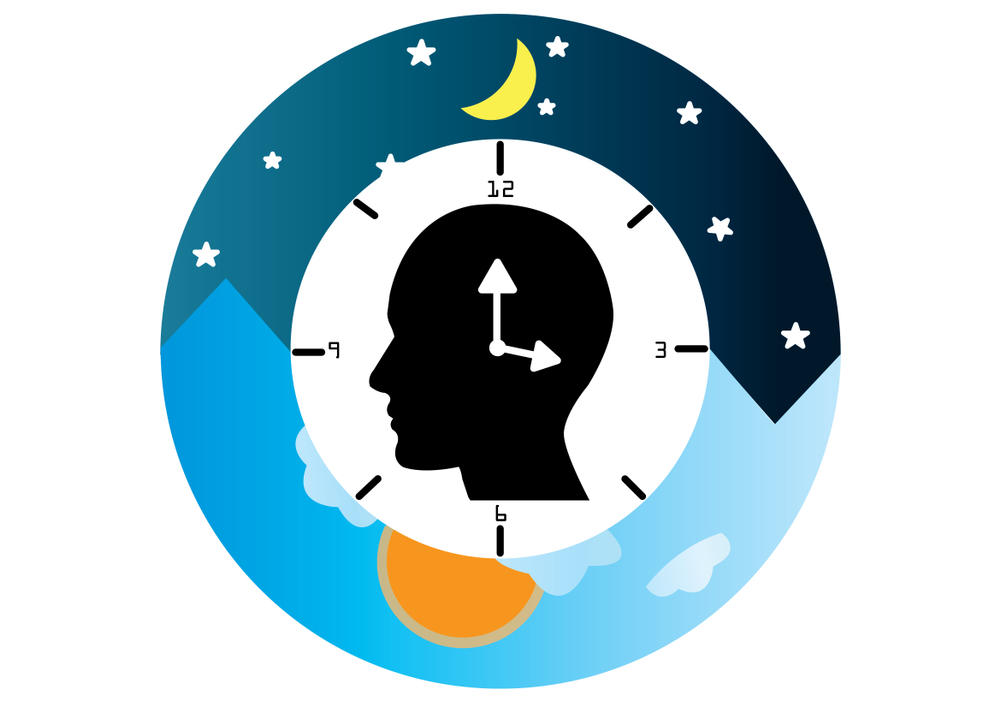
Your hypothalamus controls the release of certain neurotransmitters and chemicals that soothe the body and reawaken it. Melatonin is the compound released near the end of the day that relaxes your body and mind; this can be triggered by external environmental cues, such as the sun going down. Light and dark are some of the simplest cues that our bodies follow in terms of our Circadian rhythms.
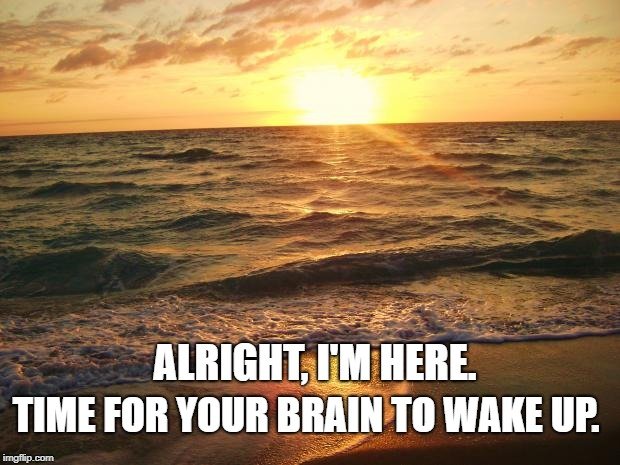
If you take good care of your sleep habits, you shouldn’t have any problem regulating your Circadian rhythm. The problem arises when you start interrupting your sleep patterns, such as staying up until 4 or 5 in the morning, and then trying to play catch-up with afternoon naps or sleeping longer the following day. Your body will attempt to adjust, and regulate your levels of energy, but unpredictability is never a good thing for your Circadian rhythm.
These rhythms aren’t present only in humans, but in almost all animals and organisms to one degree or another. ‘Biological clocks” is the term that describes the complex network of molecules, compounds, glands and organs that create these Circadian rhythms in the body. When that collection of stimuli and receptors is working properly, your sleep cycle will be normal, and you’ll feel tiredness near the end of the day, while refreshed in the morning. When those patterns and connections are disrupted, it can affect everything from your body’s metabolic efficient and stress hormone levels to the success of your sleep.
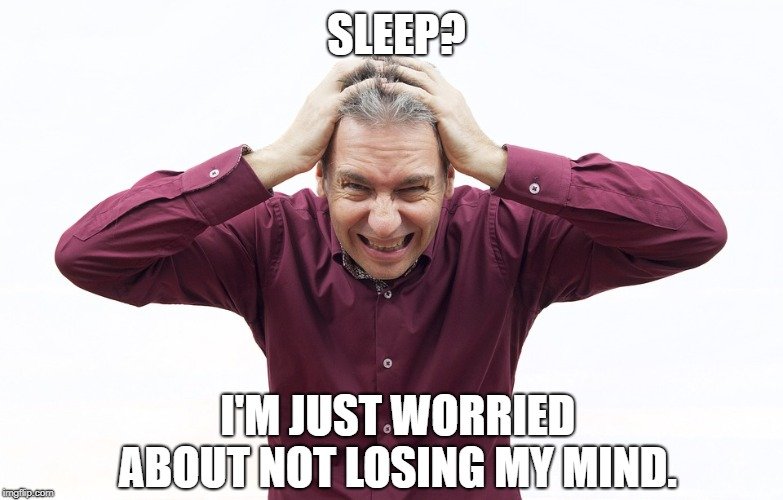
Disrupted Circadian rhythms, on a chronic basis, have even been linked to obesity, depression, diabetes and a higher susceptibility to chronic disease. In other words, ensuring that your body maintains its normal cycles is extremely important. When you fail to do that, however, you are likely to experience the frustrating situation at the heart of this article.
Also Read: Why Do We Wake Up At Roughly The Same Time Every Morning?
Causes Of Circadian Rhythm Disruptions
As mentioned earlier, there are a number of possible explanations for tiredness during the day and surges of energy at night. We will summarize some of the most common causes below, along with some tips on how to avoid such situations.
Adrenal Disorders
There are times in our life when we need a burst of energy, a kick of adrenaline or cortisol to push us through low-energy dips, or to help us in a fight-or-flight situation. These compounds are produced in the adrenal glands, which are located near the kidney. These glands help to regulate the release and the levels of stress hormones in the body, but when you are under long-term, perpetual stress, you may develop something called adrenal fatigue.
In this situation, your adrenal glands won’t be able to control these stimulating chemicals in your system, which can leave you restless and your mind whirring. One of the best ways to avoid such adrenal fatigue or exhaustion is to change your lifestyle and mindset. If you are overburdening yourself with internal and external stress, it will be difficult for your body to regulate your wakefulness.
Poor Sleeping Habits
As mentioned briefly above, sleep habits are extremely important when it comes to maintaining normal tired/wakeful states. If you stay up late, or sporadically change your sleeping patterns, your body will try to adjust, but won’t be able to immediately “catch up”. Furthermore, doing other things late at night in the bedroom, such as watching television or eating, can disrupt normal sleeping because your mind will begin to associate the bedroom with waking activities, rather than slumber. Relying on stimulants, such as caffeine or nicotine, can also affect how you feel in the evenings and mornings. Avoiding dependence on chemicals to alter your wakefulness will help your body solidify and retain its normal, healthy rhythms. Drinking alcohol in the evening to relax can also affect your alertness in the morning, i.e., you may have a hangover.

Sleep Disorders
Aside from renal disorders, there are a number of sleep disorders that may also affect your ability to feel energetic in the morning. Some of the most common problems are insomnia, sleep apnea, narcolepsy, restless leg syndrome, sleepwalking and REM sleep behavior disorder. There are well known and established techniques to treat or moderate many of these disorders, all of which can be learned about from your doctor. If these sleep disorders are allowed to go on untreated, they will make it very difficult for your Circadian rhythm to reestablish itself, meaning that you will continue feeling sluggish at the worst possible time – the moment you wake up!
Mental Vs Physical Exhaustion
This is one of the more interesting explanations for those people who are tired all day and then wired at night. If you have a mentally taxing job, your brain might be exhausted by the end of the day, but if you’ve been sitting at a desk all day, you have a lot of physical energy that is stored up. Thus, during the day, it is natural to feel more exhausted, because you are stuck in a sedentary position, wearing out your mind. When you get home, your body wants to expend the physical energy it has stored up, precisely when you want your body to relax and allow you to fall asleep. Taking physical activity breaks throughout the day can be an effective remedy for this particular situation, even if that just means walking around your office building a few times on your lunch break!
Also Read: Why Do Teenagers Always Want To Go To Sleep Late?
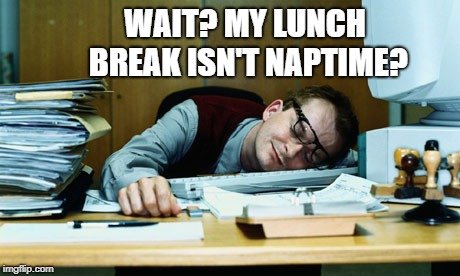
Do you remember why do we sometimes feel energetic during night but tired during the day?

References (click to expand)
- Disruption Of Circadian Rhythms Affects Both Brain And Body .... Science Daily
- Why Do I Feel Sleepy Until the Moment I Get in Bed?. Time
- Circadian Rhythm: What Is It and How It Affects Sleep. This result comes from www.sleep.org
- Circadian Rhythm Sleep Disorders: Types, Symptoms and .... Cleveland Clinic
